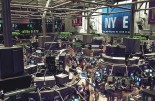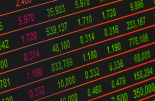State Street: Outsourced trading is gaining momentum

In a market where institutional investors are expected to do more with less, outsourced trading is gaining momentum and transforming operations within firms of all sizes.
The changing role of traders has become a trending topic among financial services firms in recent years, giving rise to a debate about the merits of in-house versus outsourced trading desks.
Once considered as a tool for small funds, outsourced trading has now evolved as a way to deliver operational gains even to large institutional investors.
COVID-19 emphasized the cost saving and business continuity benefits of outsourcing. Consequently, the buy side has become increasingly comfortable with the practice. The number of outsourced trading providers increased from nine in 2018 to more than 40 in 2022. It is anticipated that the revenue for outsourced trading will reach under US$1.7 billion in 20231 as large asset managers outsource all or part of their trading activity.
However, some misconceptions persist, with outsourced trading at times viewed as a threat to in-house desks and lacking strategic merit.
A strategic advantage
In a market characterized by volatility, tight margins and heightened regulations, firms that dismiss outsourcing as a purely defensive solution will be missing out.
Outsourced trading is an opportunity to delegate multiple aspects of trading operations and back-office functions that are traditionally held by in-house teams. From large funds where daily trading is pivotal for revenue to smaller investment managers with limited in-house resources, outsourced trading caters to a multitude of needs — whether that is time zone coverage, accessing new asset classes or extending broker networks. Partnering with a third party can give firms access to a global network of specialized traders, expanding their reach and capabilities.
Firms can choose to outsource trading in its entirety (like many do), but outsourced trading exists on a supplementary basis. The findings of our latest report, Outsourced trading as a strategic advantage: Interviews with institutional investors, underscore the diverse outsourced trading strategies adopted by institutional investors, as well as the benefits they reap.
A highly customizable solution
An in-house trading desk that can support multiple asset classes and markets requires a substantial investment in both talent and technology. Choosing an outsourcing partner is a consideration beyond cost.
While passive managers value the “set and forget” approach, active managers see it as a way to streamline operations and focus on optimizing client portfolios.
Outsourced trading can also facilitate technology adoption. For example, with integrated systems, an outsourced trading partner can support the full trade lifecycle across the front, middle and back office.
According to our research, firms already engaged with a third-party provider were noted to have an overwhelmingly positive experience. Firms value providers with a strong reputation. They understand that the benefits gained from partnering with globally recognized institutions, which have the scale and reputation they need to expand and generate alpha, more than justify the expenses.
As cost pressures persist and regulatory requirements ramp up, the appeal of outsourcing is expected to continue. Fund managers must find new, innovative ways to focus on their core pursuit of delivering returns to investors, and outsourcing is a highly customizable solution that enables funds to enhance performance across markets and asset classes.









